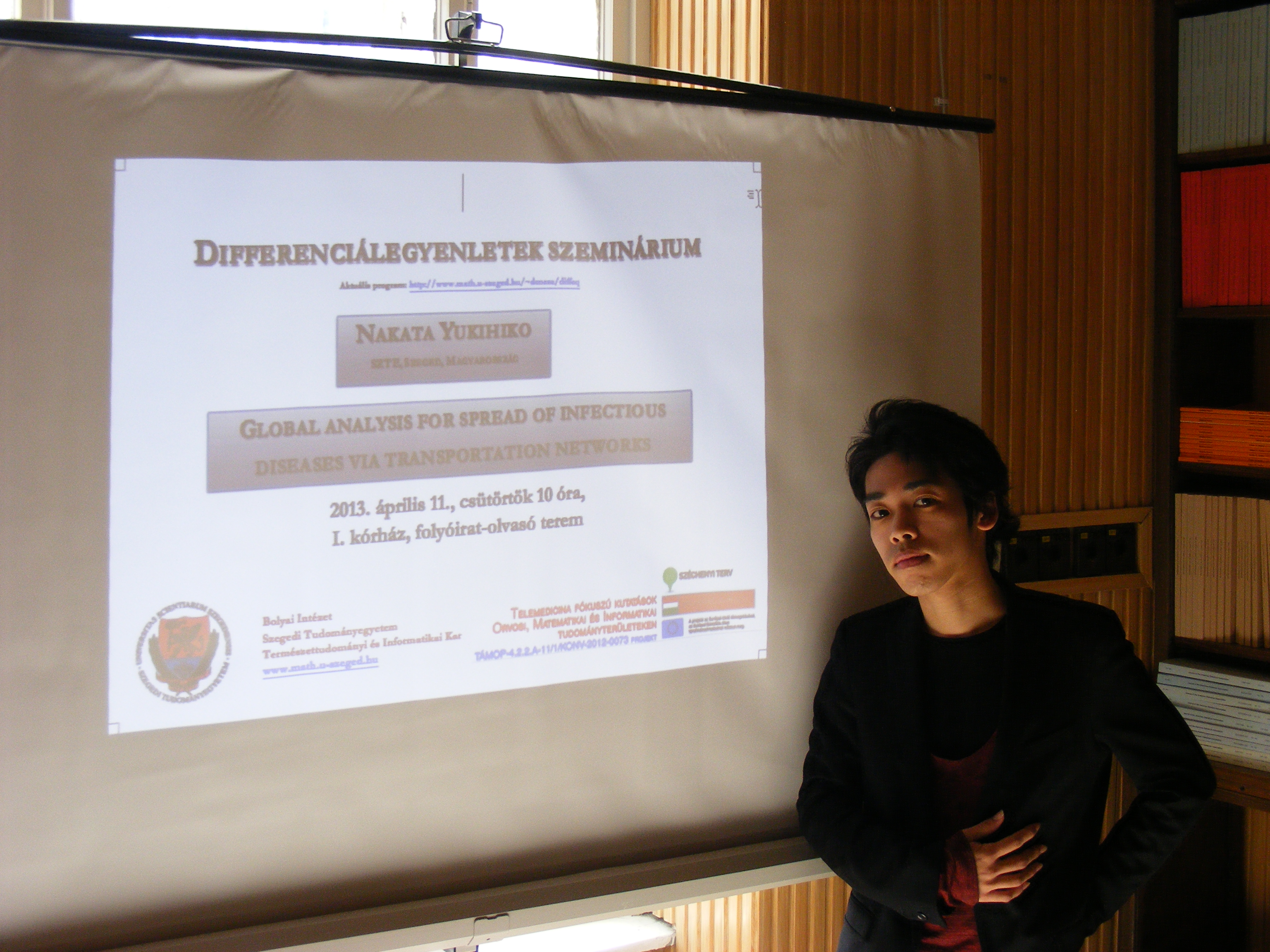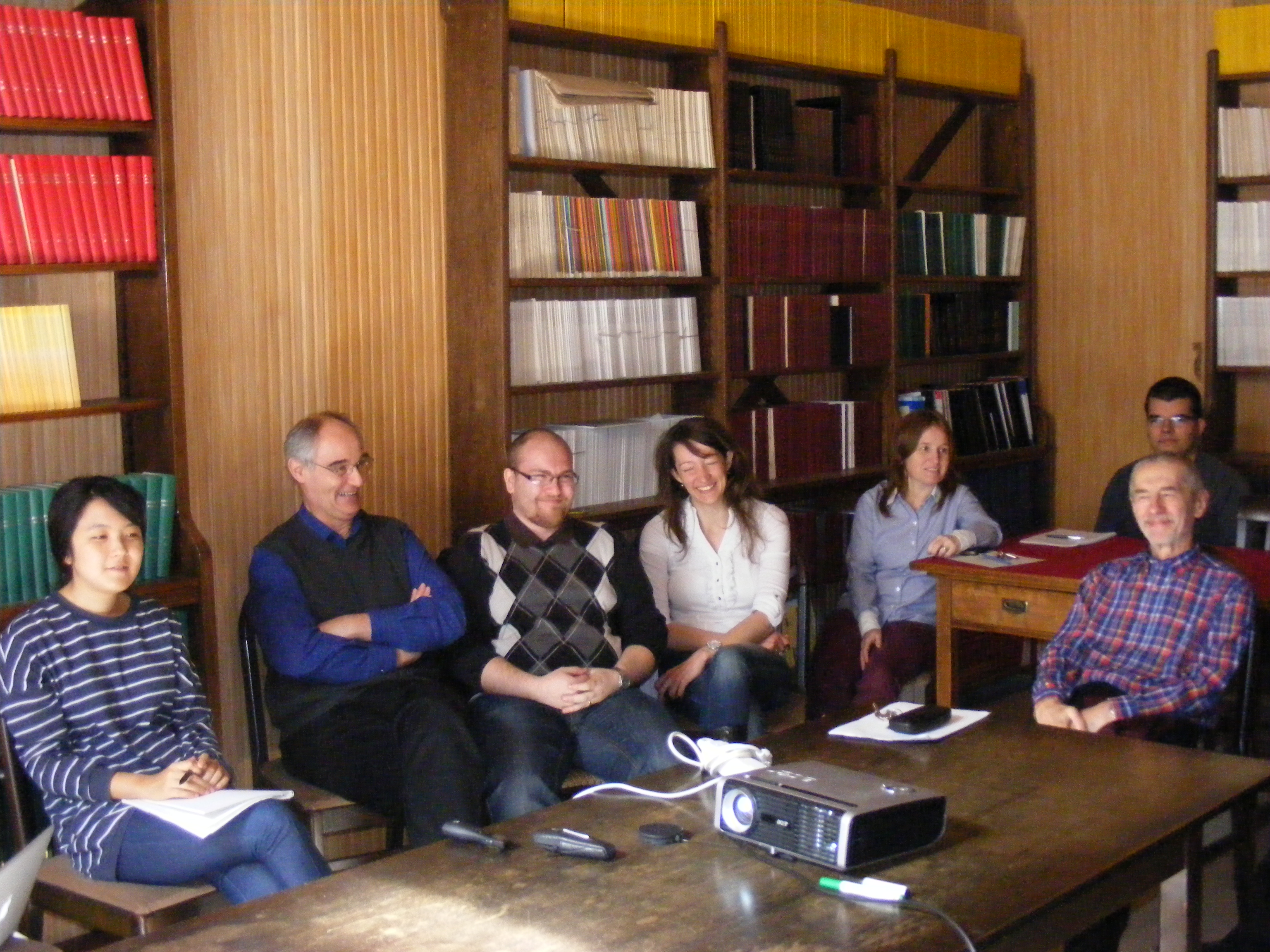Nakata
Yukihiko (SZTE, Szeged, Magyarország)
Global analysis for spread of infectious diseases via transportation
networks
Abstract: We
formulate an epidemic model for the spread of an infectious
disease along with population dispersal over an arbitrary number
of distinct regions. Structuring the population by the time
elapsed
since the start of travel, we describe the infectious disease
dynamics
during transportation as well as
in the regions.
As a result, we
obtain a system of delay differential equations. We define the
basic
reproduction number R0
as the spectral radius of a next
generation matrix. For multi-regional systems with strongly
connected
transportation networks, we prove that if R0≤1
then the disease will be eradicated from each region, while if R0>
1 there is a globally asymptotically stable equilibrium,
which is endemic in very regions.
If the transportation network
is not strongly connected, then the model analysis shows that
numerous
endemic patterns can exist by admitting a globally asymptotically
stable equilibrium, which may be disease free in some
regions
while endemic in other
regions. We provide a procedure to detect
the disease free and the endemic regions according to the network
topology and local reproduction numbers. For a system consisting
of two regions, we find that due to spatial heterogeneity characterized
by different local reproduction numbers, R0
may
depend non-monotonically on the dispersal rates, thus travel restrictions
are not always beneficial.



